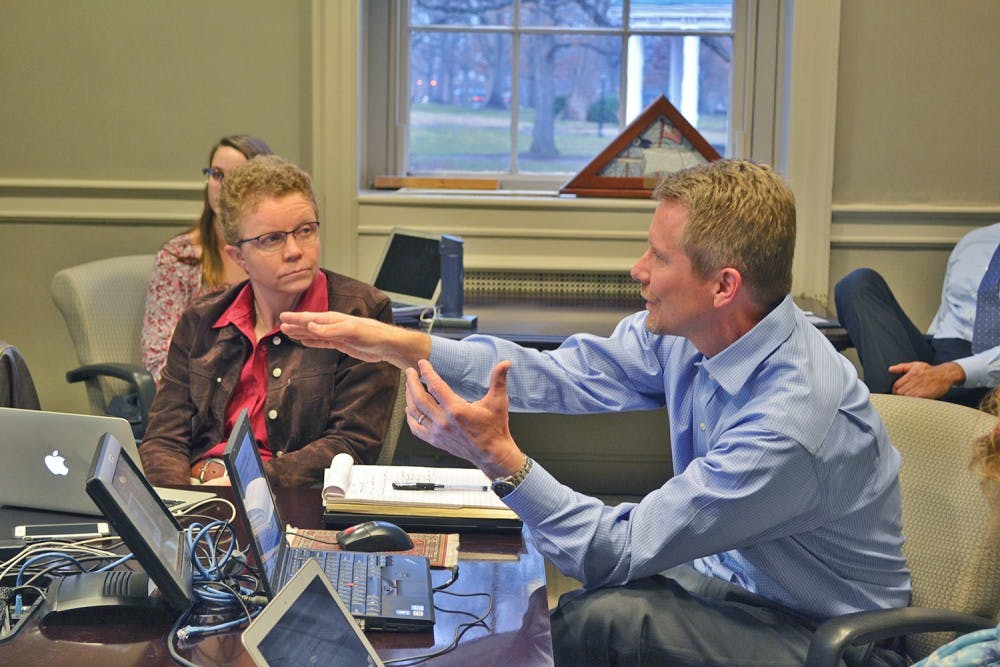Members of the Faculty Executive Committee spent much of Monday's meeting hearing a presentation on ways to improve science programs at UNC.
In compliance with the University's accrediting agency, the Southern Association of Colleges and Schools, the University is preparing a Quality Enhancement Plan (QEP) for its science programs. The plan will outline objectives for the next five years.
The final QEP is due to the agency in January 2016, but the committee would like to have a draft submitted to the Office of the Executive Vice Chancellor and Provost this spring.
“This doesn’t get as much attention because it’s not as glamorous as athletics or some situation where we may lose our accreditation,” said Stephen Barber, administrative support specialist in the Office of the Executive Vice Chancellor and Provost.
“This is a plan for going forward that will impact our University for the better.”
A review of the University’s science programs concluded that science majors needed more entrepreneurship initiatives, flipped classroom structures for large lectures and better advising to finish on time.
The QEP committee recommended more creation spaces, such as the 3D printer in the Kenan Science Library, to foster innovation in the sciences.
Data on high-structure active learning environments, like flipped classrooms, have shown to improve achievement in minority students, transfer students and first-generation students.
“Flipped classrooms have made minority students feel much more welcome because the groups they are put in allow them to get to know people they otherwise wouldn’t meet,” said Leslie Parise, who serves on the QEP committee as well as Faculty Executive Committee.



